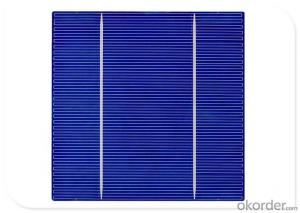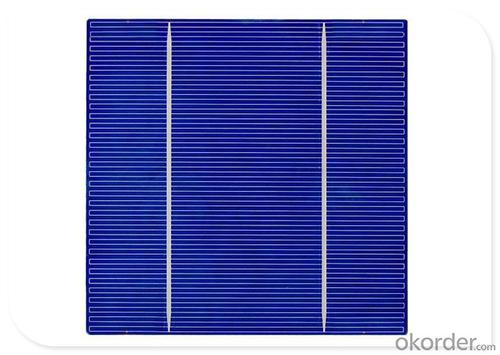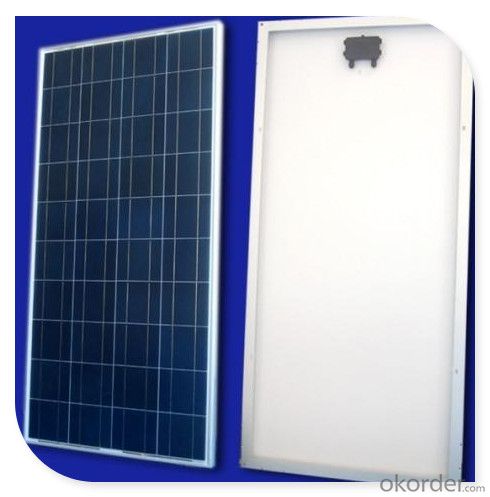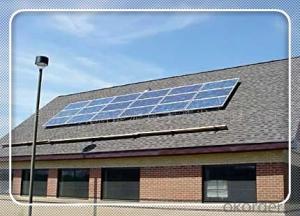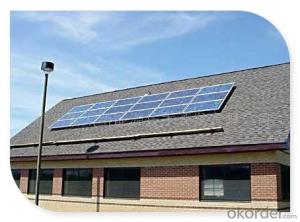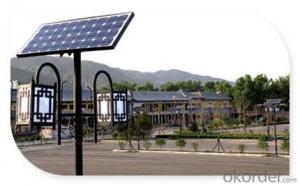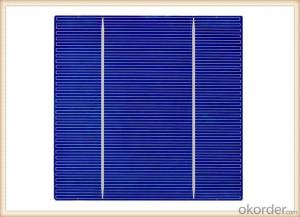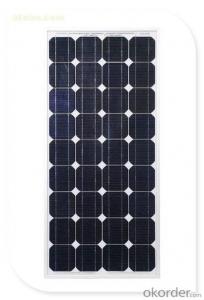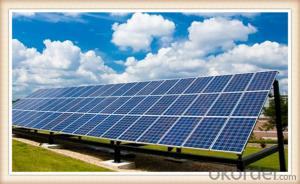SM Solar Panels 30W Efficiency Chinese Solar Panels for Sale 5-200W
- Loading Port:
- China main port
- Payment Terms:
- TT OR LC
- Min Order Qty:
- 10000 watt
- Supply Capability:
- 100000 watt/month
OKorder Service Pledge
OKorder Financial Service
You Might Also Like
Specification
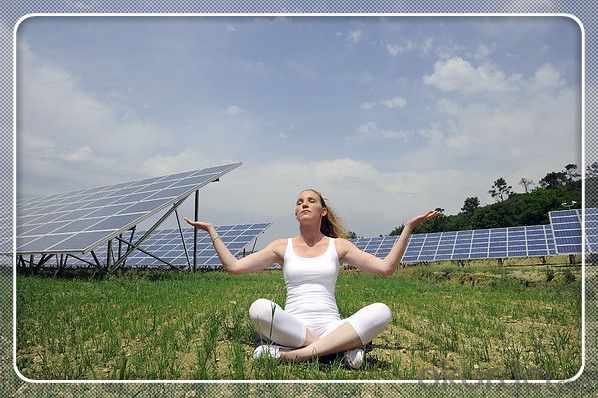
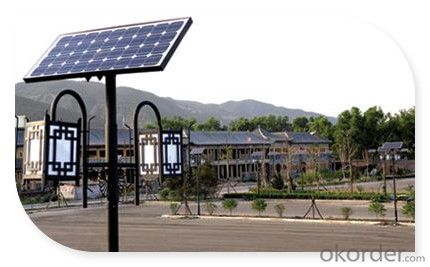
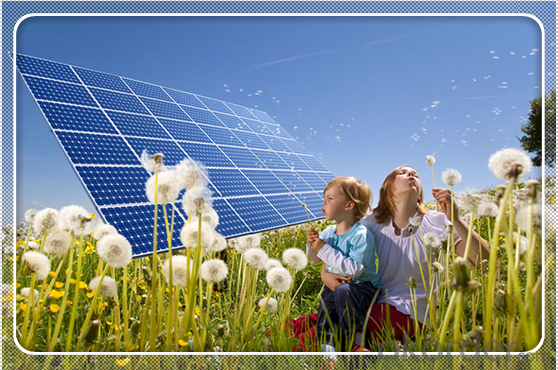
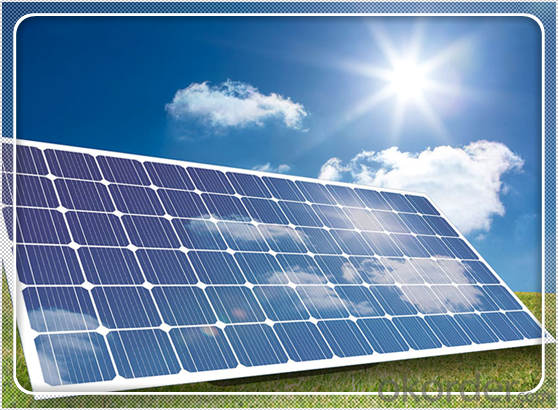
Solar Module Introduction
Solar Module is the core part of solar PV power systems, also is the highest value part of it. The function of Solar Module is to convert the sun's radiation to electrical energy, or transfer it to battery and store in it, or to drive the load running.
The Product has been widely used in space and ground, it mainly used for power generation systems, charging systems, road lighting and traffic signs areas. It could offer a wide range of power and voltage, and with high conversion efficiency, and long service life.
Solar modules use light energy (photons) from the sun to generate electricity through the photovoltaic effect. The majority of modules use wafer-based crystalline silicon cells or thin-film cells based on cadmium telluride or silicon. The structural (load carrying) member of a module can either be the top layer or the back layer. Cells must also be protected from mechanical damage and moisture. Most solar modules are rigid, but semi-flexible ones are available, based on thin-film cells. These early solar modules were first used in space in 1958.
Electrical connections are made in series to achieve a desired output voltage and/or in parallel to provide a desired current capability. The conducting wires that take the current off the modules may contain silver, copper or other non-magnetic conductive transition metals. The cells must be connected electrically to one another and to the rest of the system. Externally, popular terrestrial usage photovoltaic modules use MC3 (older) or MC4 connectors to facilitate easy weatherproof connections to the rest of the system.
Secification
Model Type | |
Peak Power-Pmax(W) | 5-200W |
Open Circuit Voltage-Voc(V) | 44.2 |
Maximum Power Voltage-Vmp(V) | 36 |
Short Circuit Current-Isc(A) | 5.4 |
Maximum Power Current-Imp(A) | 5 |
Maximum System Voltage | 1000V DC |
Maximum Series Fuse Rating | 10A |
Power Tolerance | -1~+3% |
Temperature Coefficients of Pmax | -0.45%/℃ |
Temperature Coefficients of Voc | -0.348%/℃ |
Temperature Coefficients of Isc | 0.031%/℃ |
Nominal Operating Cell Temperature | 44.5±2℃ |
Standard Testing Condition(STC) | Irradiance:1000W/m²;Temperature:25℃;AM=1.5 |
Qualification Test Parameters | |
Operating Temperature | -40℃~+85℃ |
Storage Temperature | -40℃~+85℃ |
Pressure Bearing | ≥5400Pascal/m² |
Wind Bearing | ≥5400Pascal/m² |
Mechanical Characteristics | |
Cell Size | Mono 125*125mm±0.5 |
No.of Cells | 72pcs(6*12) |
Dimension | 1580*808*40mm |
Weight | 15.5Kg |
Glass | 3.2mm High Transmission,Low Iron |
Frame | Anodized Aluminum Alloy |
Junction Box | IP65Rated |
Internal Diodes | 3 Bypass Diodes |
Cable | 1*4.0mm² Length 900mm |
Images
Packing & Shipping:
We have rich experience on how to pack the panels to make sure the safety on shipment when it arrives at the destination.
The normal size is packed by 25pcs/ carton / pallet. Paper carton for FCL shipping and wood carton for LCL shipping.
Warranty:
For c-Si panel: 25years output warranty for no less than 80% of performance, 10 years output warranty for no less than 90% of performance. Free from material and workmanship defects within 5 years.
For a-Si panel: 20 years output warranty for no less than 80% of performance, 10 years output warranty for no less than 90% of performance. Free from material and workmanship defects within 2 years.
FAQ:
(1)What price for each watt?
It depends on the quantity, delivery date and payment terms.
(2)What is your size for each module? Can you tell me the Parameter of your module?
We have different series of panels in different output, both c-Si and a-Si. Please take the specification sheet for your reference.
(3)Can you provide the peripheral products of the solar panels, such as the battery, controller, and inverter? If so, can you tell me how do they match each other?
Actually we are only manufacturer of solar panels, but we could try to source them for you in China if you need. We could provide you an optimal system design to instruct you how to install.
(4)Do you have the CE, TUV, UL Certification?
We’ve already passed all the tests, and any certificate is available.
(5)Have you ever sold your products to companies in my country?
Of course, we have customers in all general PV markets, but I think we should expand our market share along with the market growth.
(6)When did your company set up? You are a new company, how can I believe your quality?
We entered into Solar PV industry in 2005, now we have several plants in manufacturing of a-Si and c-Si panels, and our capacity is 220MW per year. Till now we have already passed all the tests by authorized laboratories, e.g. TUV, VDE, UL.
(7)Can you help us install the module if we cooperate with you?
We haven’t entered into installation sector, but we have the plan in near future.
(8) How do you pack your products?
We have rich experience on how to pack the panels to make sure the safety on shipment when it arrives at the destination.
(9) Can you do OEM for us?
Yes, we can.
(10)Can we visit your factory?
Surely, I will arrange the trip basing on your business schedule.
- Q: Solar panel experiment ?wat are some experiments with solar panels that has not yet been proven? ideas
- Acciona of Spain is actively conducting research in all sorts of alternative energy. I understand they have an experimental solar farm someplace in the desert southwest of the U.S. that is made up of 283,000 panels. I don't know the size of the panels or anything else about the project other than that. 50 years ago it would have been the U.S. conducting leading research in solar energy-especially in the U.S. Southwest.
- Q: I need to build a battery array to use with my solar panels I just bought. I want to be able to store enough energy to be draw from it at night, possibly around the clock. Is there a down side to using the deep cycle battery I bought from autozone and 6 or 7 more just like it, or do I need to get some other battery?
- There are batteries particularly made for solar, such as the Trojan T05-RE . I think the RE stands for renewable energy. A deep cycle battery should work all right, although not quite as well. What you want to do is try out your setup first, with just one battery, and the panels provided. If this is one of those 45 watt kits, you may be surprised at how little energy you actually get from the panels. Increasing the number of batteries won't help, either - that's like getting a larger water tank, when you only have a trickle to fill it. If your goal is really to save money, the most cost-effective solar is the grid-tied type, with no batteries at all. That's what we have, and I've never regretted it.
- Q: How do solar panels affect the overall comfort of a building?
- Solar panels can positively impact the overall comfort of a building by reducing energy costs, improving indoor air quality, and providing a more reliable and sustainable source of electricity.
- Q: I want to know that if I put solar panels in space if Pluto can recieve energy for iPods and television
- Yes. Not practical, but possible. Solar cells actually work best at low temperatures. At a little under W/m^2, it'd take a large solar panel to generate enough power for a TV (several tens to hundreds of Watts are needed). And, no offense meant, what TV programs do you think you'll be watching? You sound kind of stupid....
- Q: Can solar panels be used to power air conditioning or heating systems?
- Yes, solar panels can be used to power both air conditioning and heating systems. Solar panels generate electricity by converting sunlight into energy, which can then be used to power various appliances and systems, including air conditioners and heating units. This allows for more sustainable and environmentally friendly ways of cooling and heating buildings.
- Q: In some countries where electric generation is low, they are not available easily.
- Believe it or not, solar panels are so expensive in this country because of government subsides. Without market competition, companies have no obligation to compete with each other on price. If our government would stop paying people to buy solar panels and giving solar panel companies tax breaks, companies would be forced to lower their price and raise their quality in order to get you to buy their product. This would be true of oil/gas, corn, soy beans and a number of other companies and products as well.
- Q: Hi, wanting to set up the most basic solar panel system for a cabin in the woods that has enough power to recharge four 2V car batteries during the daytime (i am assuming; we want to run a mini fridge maybe a stove and a few lights at night off the batteries and be able to run it all just off solar during the day) It also needs to be able to power some simple tools during the day... Experience would be absolutely amazing since alot of the info on solar paneling is either really dumbed down, or ridiculously confusing.As of right now I am looking at a 3 panel (45watt in all) solar kit that needs a 300w inverter.... is this sufficient for my power needs? I am just a little perplexed, thanks so much!
- That okorder /... , but expect to pay several thousand dollars for something that actually works. If you just want to use the place for intermittent getaways, a generator may be sufficient, and you can skip the solar panels. If you intend to live in the place, then consider getting a system that is at least 500-000 watts of panels, and a 000 amp-hour or more battery bank.
- Q: Can solar panels be installed on a shaded area?
- Solar panels are most effective when placed in direct sunlight, so installing them in a shaded area would significantly reduce their energy production. However, there are technologies available, such as bifacial solar panels or solar trackers, that can optimize energy generation in partially shaded areas.
- Q: I am doing a big project for school, and I have decided to do it on solar panels. I am new to the subject but have done some research on it; I would like to buy a single panel, a charge controller, an inverter and a battery, to charge a simple lamp. My question is if the items in the links will work together and if the panel will produce electricity?
- Sounds like fun. A -watt panel doesn't need a charge controller, though. In fact, it may take more than watt to power the charge controller. With a low-wattage panel, you can just connect the panel directly to the battery. A 7 amp-hour gel cell (the kind used in burglar alarms) would be good for this purpose. The panel is too small to charge a car battery. The gel cell should power that inverter, but only for a few minutes. If you want to be more impressive, look for a low power, 2-volt device. An iPod plus a 2-volt car adapter would be an example.
- Q: How much would it cost to make an average size house be able to depend on solar panels for all of its power?How many solar panels would you need and wear would you put them? Would the roof be large enough to support the panels needed?Do solar panels work well in higher latitudes like northern USA or southern Canada? Can you power your house for the whole year if you live in these environments? What kind of maintenance do solar panels require?
- there are maximum of variables that would make your equipment greater or much less of a good investment. I even have had a equipment for a pair years and that i'm very happy with them. I distinctly propose you get a no legal duty quote, any respected photograph voltaic installation business enterprise would be prepared to try this. I actually have a 2 tale homestead with a pool (pump is one in all my great potential purchasers) in sunny CA and characteristic great orientation, and no coloration on the section. I have been given a three.seventy 4 kw equipment (20 panels i think of) that fee $26K, I gained a $0K rebate from my application and a $2K fed tax credit (at the instant the tax credit on the comparable equipment is $7800) i became into projected to break inspite of my utilization in 7.2 years, it would desire to be faster in view that my city has raised expenses via 20% interior the previous 2 years. The equipment produces approximately ninety% of my summer season utilization and approximately 50% of my wintry climate utilization.
Send your message to us
SM Solar Panels 30W Efficiency Chinese Solar Panels for Sale 5-200W
- Loading Port:
- China main port
- Payment Terms:
- TT OR LC
- Min Order Qty:
- 10000 watt
- Supply Capability:
- 100000 watt/month
OKorder Service Pledge
OKorder Financial Service
Similar products
Hot products
Hot Searches
